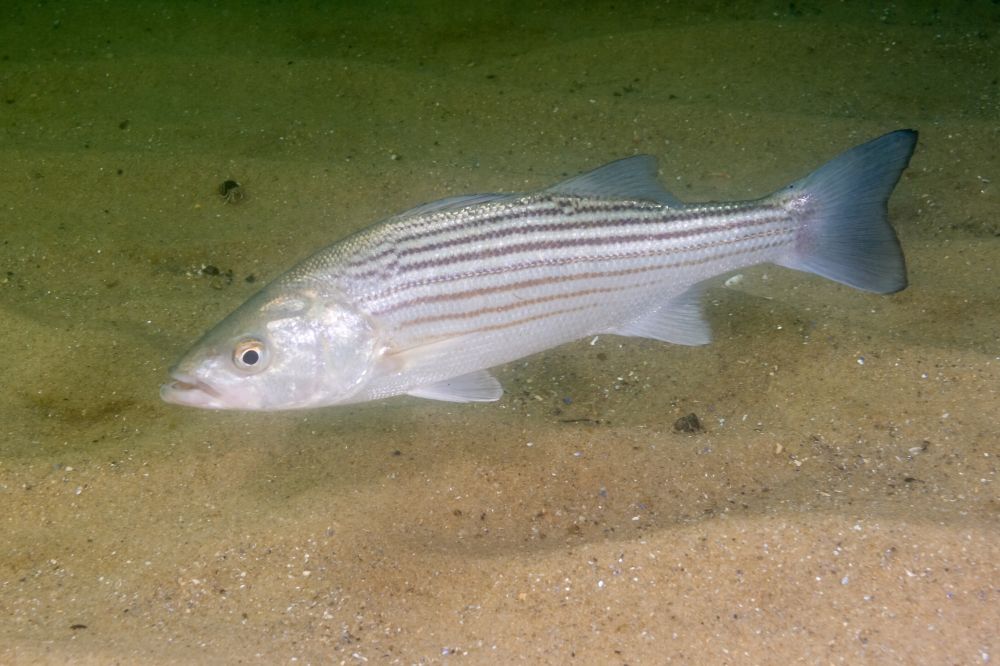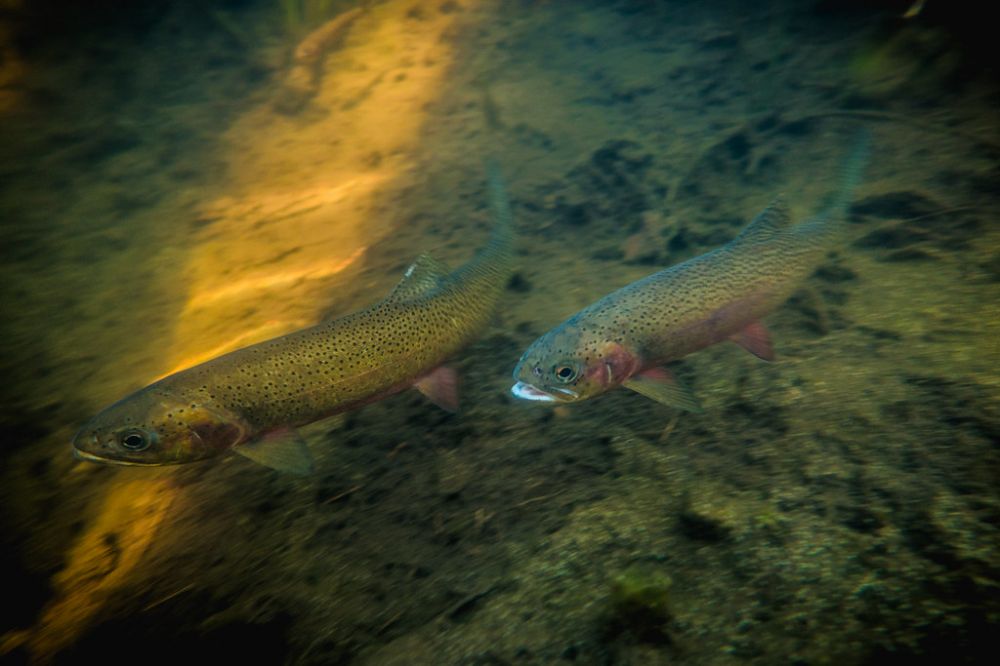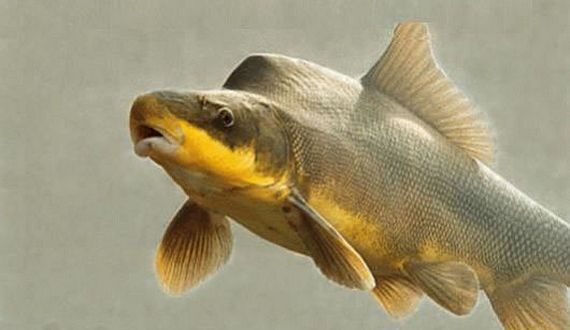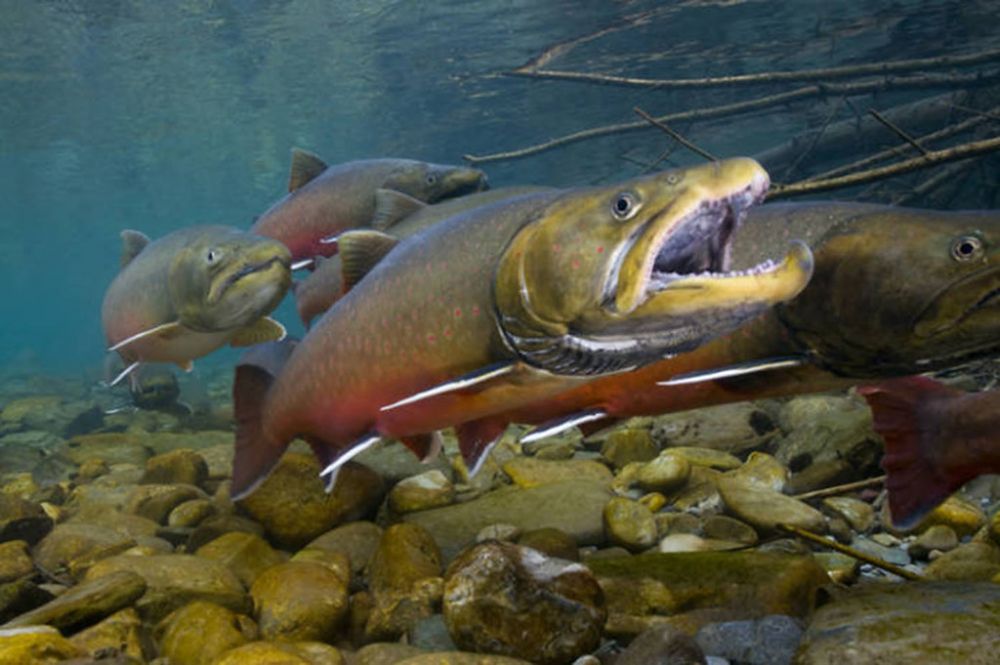Post
A catch
Save a catch to start your fishing logbook. You will be able to to share it with the community if yo want!
A fishing trip
Post an ad to go fishing with other fishermen
Save a catch to start your fishing logbook. You will be able to to share it with the community if yo want!
Post an ad to go fishing with other fishermen
Share a thought, a question with the community
My favorite cities
×Join our 4 fishermen in Saint-Louis in St. Louis (city). The fishing forecast is currently 3. The most caught fishes here are the striped bass, the westlope cutthroat trout, the razorback sucker and the bull trout. Come try the most famous fishing techniques like the surfcasting, how to catch smelt with square net?, fishing with traps or dive fishing.
Our fishing forecast of Saint Louis indicates the best time to go fishing in this city.
The Striped Bass

The Striped Bass belongs to the Moronidae family. It can weigh between 4 and 23 kg and size 46 to 140 cm. He can live up to 20 years. It spawns from April to mid-June. It can be fished from May to November. The striped bass has a laterally compressed body, a large terminal mouth, distinct dorsal fins and six to nine continuous lateral bands on both sides of its body. The second anal spine is shorter and thicker than the third anal spine. Striped bass tend to be pale green, olive, steel blue, black or brown on their back, with an iridescent white or silvery belly. Individuals over 25 years of age have been recorded and sexual maturity is reached between 2 and 4 years for men and between 5 and 8 years for women.
The Striped Bass is a famous fish you can catch in Saint Louis.The Westlope cutthroat trout

The Westlope cutthroat trout belongs to the Salmonidae Family. The average length of the fish is about 30 cm and rarely exceeds 46 cm. It has an average life span of 2 to 5 years. They breed in the spring. Fishing is prohibited because this fish is endangered. The fish has teeth under the tongue, on the roof of the mouth and on the front of the mouth. The gorge cutting the western slope is common in the waters of lakes and rivers upstream. The skin has small dark freckle-like spots, grouped towards the tail, and is mainly orange in color. They are distinguished from rainbow trout by the red, pink or orange markings under the jaw.
The Westlope cutthroat trout is a famous fish you can catch in Saint Louis.The Razorback Sucker

The Razorback Sucker belongs to the Catostomidae family. It is a relatively large catostomidae, reaching more than 91 cm in length and weighing 5 to 6 kg. It has a lifespan of 50 years. It nests from January to June. It cannot be fished because of its status as an endangered species. Razorback suckers are similar to other Catostomidae, with the exception of two main characteristics. The most characteristic features of the razorback sucker are a pronounced edge made of neural and internal bone that extends from the head to the dorsal fins, as well as elongated filaments on the gills. Females have a lower keel. Well-developed filaments are made for zooplankton feeding. It has a long snout, a long rounded head that is ventrally compressed and a ventral mouth with a split lower lip. There is 12 to 15 rays on the dorsal fin and the anal fin has 7 rays. Pelvic and anal fins are longer in males. It has an almost straight lateral line with 68 to 87 scales.
The Razorback Sucker is a famous fish you can catch in Saint Louis.The Bull trout

The Bull trout belongs to the Salmonidae family. It can measure up to 103 cm long and weigh up to 14.5 kg. It can live for a dozen years. It breeds from July to December. It can be fished from June to February. Like other arctic char species, the fins of a bull trout have white leading edges. Its head and mouth are exceptionally large for salmonidae, which gave it its name. Bull trout up to 103 cm long and weighing 14.5 kg have been recorded. Bull trout can be migratory, moving through major river systems, lakes and the ocean, or they can be resident and remain in the same river all their lives. Migratory bull trout is generally much larger than resident bull trout, which rarely exceeds 2 kg. Bull trout differs from brook trout (S. fontinalis) in the absence of distinct spots on the dorsal fin, as well as yellow, orange or salmon spots on the back, as opposed to red spots with blue halos on the trout stream. Bull trout do not have the deep-dug caudal fin of lake trout (S. namaycush, another Arctic char).
The Bull trout is a famous fish you can catch in Saint Louis.The Humpback Chub

The Humpback Chub belongs to the Cyprinidae family. The maximum size recorded was 38 cm. It has a lifespan of 30 years. It spawns from April to June. It is a protected species, so the angling is prohibited. The body is almost entirely without a scale, retaining only 80 mid-lateral scales along the lateral line. The scales are deeply embedded on the surface of the fish, especially on the hump. The fish has a very streamlined body, with a thin caudal peduncle and a deeply forked tail. The fins are large and curved, and the origin of the ridge is approximately equal distance from the snout and base of the caudal fin. The mouth is lower and overhung by the muzzle. The pharyngeal arch is small, with a small lower branch. The back is pale olive grey, the sides silvery and the belly white. The dorsal fin generally has nine rays and the anal fin has 10 or more.
The Humpback Chub is a famous fish you can catch in Saint Louis.Our fishing forecast of Saint Louis indicates the best time to go fishing in this city.
Our fishing forecast of Saint Louis indicates the best time to go fishing in this city.
Our fishing forecast of Saint Louis indicates the best time to go fishing in this city.
